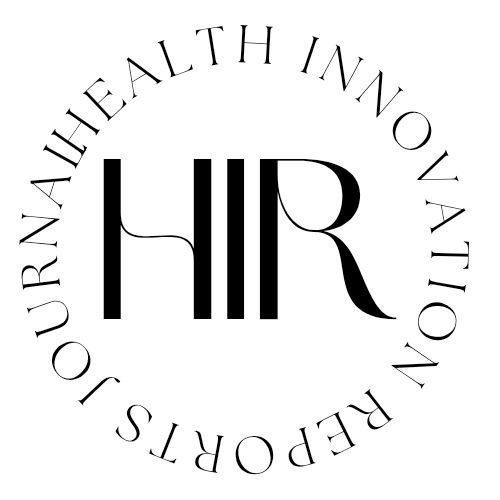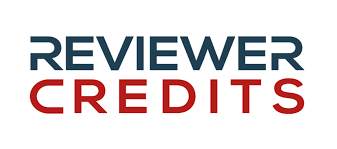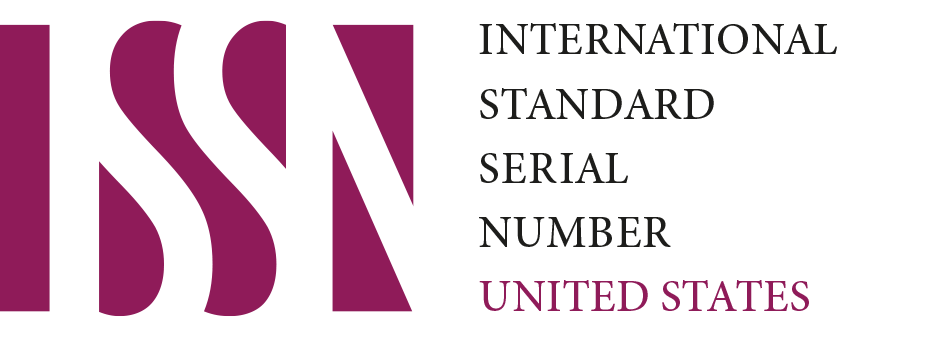Scrolling vs. Studying: The Impact of Social Media on High School Students’ Study Habits in Erbil, 2024-2025
DOI:
https://doi.org/10.64048/hir.v1n2.002Keywords:
Social media, Study habits, Academic performance, Adolescents, Education, Digital distractionAbstract
Background and Aim: High school students are increasingly engaged with social media, which may influence their study habits, academic performance, and overall lifestyle. This study aimed to analyze the demographic patterns of social media use, its perceived impact on study habits, and the effectiveness of management strategies among high school students in Erbil.
Method: This cross-sectional study was conducted from 12th of July to 11th of November, 2024, in five public high schools in Erbil. Convenience sampling was used to collect data using a structured questionnaire. The questionnaire included demographic information and the Social Media and Study Habits Assessment Scale (SMSHAS), which measured distraction, lifestyle disruption, and academic outcomes. Statistical analysis was performed using SPSS version 29 (IBM Corp., Armonk, NY, USA). Descriptive analysis, chi-square tests, and one-way ANOVA were conducted to assess associations between social media use, demographic variables, academic indicators, and management strategies.
Results: A total of 500 students participated in the study. Most students reported daily social media use of 1–2 hours (37.2%) or 2–4 hours (34.0%), while 7.4% exceeded six hours. The most preferred platforms were YouTube (26.3%) and TikTok (25.7%). Negative impacts were common, with 73.8% reporting laziness, 62.0% experiencing sleep or eating difficulties, and 78.8% perceiving wasted time. Academic performance was significantly associated with daily usage hours (p < 0.001), as students using social media more than six hours daily had the lowest GPA (2.51 ± 0.79) compared to those using 1–2 hours (3.42 ± 0.58).
Conclusions: The study demonstrated that high school students in Erbil are highly exposed to social media, with significant negative impacts on study habits and academic performance, particularly among heavy users. Educational stakeholders and policymakers should promote awareness campaigns and encourage the use of effective management strategies to support students in balancing digital engagement with academic success.
Downloads
References
AHMED, S. M., SABER, A. F., NAIF, A. A., HAMAD, A. H., AHMED, S. K., ABDULLAH, A. Y., QURBANI, K., HUSSEIN, S. & NAIF, A. 2024. Exploring young adults' reluctance to engage with psychiatric hospitals in Erbil, Iraq: identifying barriers to psychiatric care. Cureus, 16. https://doi.org/10.7759/cureus.62164
AKHAGBAKER, J. M., KAREEM, M. S., RASOOL, A. A., SABER, A. F., AZIZ, K. F. & KAREEM SR, M. S. 2024. Assessment of knowledge and practice regarding psychological first aid among secondary school students in Erbil City. Cureus, 16. https://doi.org/10.7759/cureus.64671
BERTRANDIAS, L., BERNARD, Y. & ELGAAIED-GAMBIER, L. 2023. How using parental control software can enhance parents’ well-being: The role of product features on parental efficacy and stress. Journal of Interactive Marketing, 58, 280-300. https://doi.org/10.1177/10949968221144270
CURTAIN, R. Promoting youth employment through information and communication technologies (ICT): Best practice examples in Asia and the Pacific. ILO/Japan Tripartite Regional Meeting on Youth Employment in Asia and the Pacific. Bangkok, 2001. 1-53.
DEGENHARDT, L., GREBELY, J., STONE, J., HICKMAN, M., VICKERMAN, P., MARSHALL, B. D., BRUNEAU, J., ALTICE, F. L., HENDERSON, G. & RAHIMI-MOVAGHAR, A. 2019. Global patterns of opioid use and dependence: harms to populations, interventions, and future action. The Lancet, 394, 1560-1579. https://doi.org/10.1016/S0140-6736(19)32229-9
FAREEQ SABER, A., MASIH, S., KARIMIRAD, M. R., SHARIFI, F. & MANOOKIAN, A. 2024. The relationship between internet addiction, sleep quality, and psycho‐social problems among secondary school students in Erbil, 2023–2024. Public Health Nursing, 41, 933-942. https://doi.org/10.1111/phn.13353
GARDNER, B., RICHARDS, R., LALLY, P., REBAR, A., THWAITE, T. & BEEKEN, R. J. 2021. Breaking habits or breaking habitual behaviours? Old habits as a neglected factor in weight loss maintenance. Appetite, 162, 105183. https://doi.org/10.1016/j.appet.2021.105183
KRISHNAMURTHY, K., BHARATHA, A., MEHTA, S., MOHAMMED, K., SA, B., RAHMAN, S., SUNDARAM, M., HAQUE, M. & MAJUMDER, M. A. A. 2025. Navigating the Digital Dilemma: Internet and Smartphone Addiction among Children and Adolescents. Advances in Human Biology, 10.4103. https://doi.org/10.4103/aihb.aihb_53_25
KUZMINYKH, I., GHITA, B. & XIAO, H. The relationship between student engagement and academic performance in online education. 2021 5th International Conference on E-Society, E-Education and E-Technology, 2021. 97-101. https://doi.org/10.1145/3485768.3485796
LYNCH, J., O’DONOGHUE, G. & PEIRIS, C. L. 2022. Classroom movement breaks and physically active learning are feasible, reduce sedentary behaviour and fatigue, and may increase focus in university students: a systematic review and meta-analysis. International journal of environmental research and public health, 19, 7775. https://doi.org/10.3390/ijerph19137775
METCALF, E. B. 2016. ADHD and the disruptive behavior disorders. The Medical Basis of Psychiatry. Springer. https://doi.org/10.1007/978-1-4939-2528-5_18
MORAVEC, J. W. & MARTÍNEZ-BRAVO, M. C. 2023. Global trends in disruptive technological change: social and policy implications for education. On the Horizon: The International Journal of Learning Futures, 31, 147-173. https://doi.org/10.1108/OTH-02-2023-0007
MUSTAFA, S. A., ABDULLA, S. I., PIRO, T. J., IBRAHIM, W. A., MAQSOOD, S. S., SABER, A. F. & MAQSOOD, S. S. 2024. Sleep disturbances among pregnant women attending a maternity teaching hospital in Erbil, Iraq. Cureus, 16.
MYERS, C.-A. & COWIE, H. 2019. Cyberbullying across the lifespan of education: Issues and interventions from school to university. International journal of environmental research and public health, 16, 1217. https://doi.org/10.3390/ijerph16071217
PRATAMA, W. P. M. A., ASTUTI, W., NAHROWI, W., JANNAH, W. & UTAMI, W. 2024. Implementation of the Pomodoro Method to Improve Student Learning Outcomes in Natural and Social Sciences Learning at MIN 20 Banjar. Indonesian Journal of Education and Social Humanities, 1, 46-54. https://doi.org/10.62945/ijesh.v1i2.663
RAJASEKARAN, S. & CASAP, L. 2022. Moldova–Digital Education Readiness Assessment 2021-22. ASSESSMENT, 2021, 22.
SALEH, M., ALI, J. & AFIFI, W. 2018. Nurses compliance to standards of nursing care for hemodialysis patients: Educational and training intervention. IOSR Journal of Nursing and Health Science (IOSR-JNHS) e-ISSN, 7, 48-60.
SALO, M., PIRKKALAINEN, H. & KOSKELAINEN, T. 2019. Technostress and social networking services: Explaining users' concentration, sleep, identity, and social relation problems. Information Systems Journal, 29, 408-435. https://doi.org/10.1111/isj.12213
STOILOVA, M., EDWARDS, C., KOSTYRKA-ALLCHORNE, K., LIVINGSTONE, S. & SONUGA-BARKE, E. 2021. Adolescents’ mental health vulnerabilities and the experience and impact of digital technologies: A multimethod pilot study.
TABER, K. S. 2018. The use of Cronbach’s alpha when developing and reporting research instruments in science education. Research in science education, 48, 1273-1296. https://doi.org/10.1007/s11165-016-9602-2
TAHA, A. 2021. The Wave of Change in The Methods of Education Brought by Social Media: A Case Study of TikTok’s Potential for Educational Content Creators. Aalborg University.
WALSH, K., ZWI, K., WOOLFENDEN, S. & SHLONSKY, A. 2018. School-based education programs for the prevention of child sexual abuse: A Cochrane systematic review and meta-analysis. Research on social work practice, 28, 33-55. https://doi.org/10.1177/1049731515619705
ZHANG, Y., QIN, X. & REN, P. 2018. Adolescents' academic engagement mediates the association between Internet addiction and academic achievement: The moderating effect of classroom achievement norm. Computers in human behavior, 89, 299-307. https://doi.org/10.1016/j.chb.2018.08.018
Downloads
Published
Data Availability Statement
The data that support the findings of this study are available from the corresponding author upon reasonable request.
Issue
Section
License
Copyright (c) 2025 Shamsadeen Abdullah Mohammed, Helen Naif Ahmad, Mohammed Tayeb Sadeeq, Hardi Abdulqadir Hasan, Zakaria Tahsin khdir (Author)

This work is licensed under a Creative Commons Attribution 4.0 International License.
All articles published in Health Innovation Reports are licensed under the Creative Commons Attribution 4.0 International License (CC BY 4.0). This means anyone is free to share and adapt the work, provided proper attribution is given to the original authors and source.















